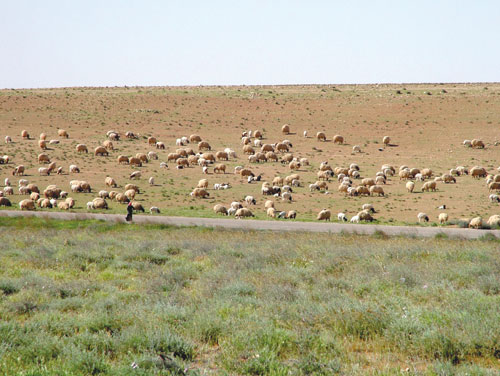ACSAD’s Strategy

Led by ACSAD’s belief that there are several national, Arab and international updates and variables that necessitate the preparation of a new strategy for the next ten years (2009-2019), the new strategy of ACSAD comes as a natural result for the rapid, wide, deeply-effective and comprehensive changes reflected in the scientific revolutions and contemporary techniques; environmental problems and desertification; biodiversity; climatic changes; biosafety and biotechnological safety; genetic engineering; trade liberation; international competition and use of agricultural products in biological fuel production. The negative impacts of these updates including the expensive bill of food items import in the Arab countries, particularly under the current Arab food gap and water scarcity, can be faced through Arab agricultural integration, encouraging agricultural investment, benefiting from relative and competitive advantages in agriculture in the Arab countries and liberating trade in a way that achieves privatization, optimal use of Arab agricultural resources, food self-dependency and food self-sufficiency.
The strategic trends cover the fields of: water resources development, conservation and rationalization; land resources protection from desertification and productive capacity improvement; plant resources and development of new genetically-improved and drought-tolerant varieties of field crops (cereals), fruit trees and pastoral plants; genetic resources conservation and genetic animal resources improvement of goats, sheep, cattle and camel breeds; in addition to agricultural techniques and researches, environment and biodiversity conservation and climatic changes impact facing.
The strategy has focused on the fact that its implementation depends on several factors namely; enhancing the executive capacity of ACSAD, developing its relations with financing agencies, expanding its expertise transfer operations, activating the role and participation of rural women in agricultural development process and decision-making, building capacities and scientific researches, developing financial performance, rationalizing expenditure, allocating the biggest part of its budget to development programs and projects and decreasing the expenses of administrative aspects.
The strategy has given the priority of implementation to the programs, projects and activities that are related to the interests and development plans of Arab countries, particularly in the fields of: conservation, protection and efficient management of natural agricultural resources; finding out appropriate techniques for resources development, protection and rehabilitation; disseminating techniques at the widest range in the concerned Arab countries and within the available technical and financial limits and potentials; providing genetically-improved plant and animal resources appropriate for the Arab arid environments; providing national programs with improved genetic resources; raising the technical capacities of Arab staffs through training courses and meetings organized by ACSAD annually; transferring techniques to farmers and conducting socio-economic studies on the adoption of agricultural techniques by farmers and the related constraints and solutions. In terms of standards of performance monitoring and evaluation, the strategy focuses on measuring and evaluating performance by comparing the actual achievements with the targeted objectives of the programs, projects and activities and evaluating the financial, technical and in-kind performance, taking into consideration the time dimension and the strength and weakness points. This evaluation process should be supported by external Arab and international expertise before the results adoption.



